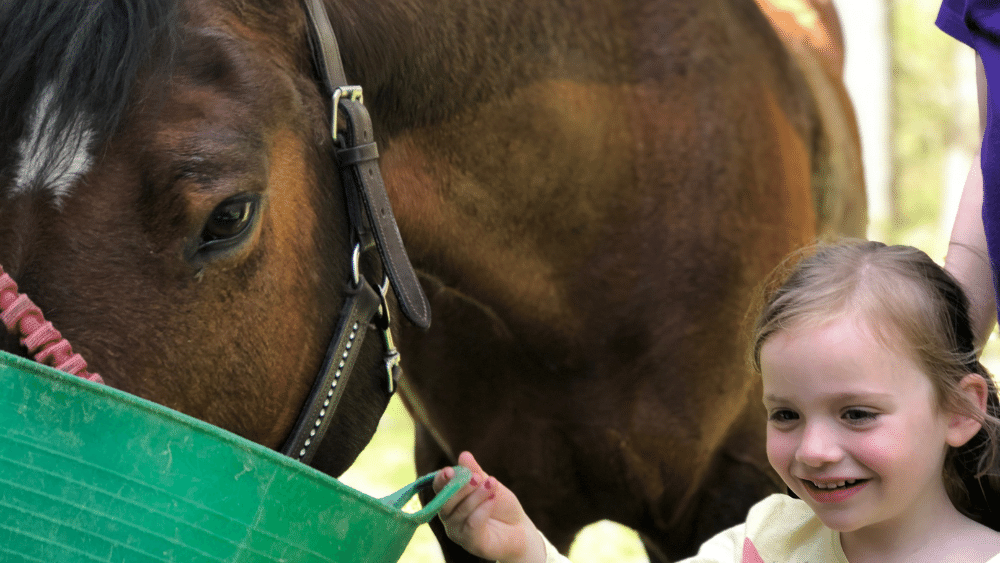- Mycotoxins and the Horse - April 1, 2023
- Winter Horse Feeding - February 3, 2022
- Feeding a Performance Horse - December 21, 2021
In this article, we are going to look at B vitamins for horses, what exactly are B vitamins? and if your horse may need them. We will look at what B vitamins do and what forage is a high source of these B vitamins for horses.
What are B Vitamins and does my horse need them?
Our domestic horses often enjoy a varied life, many have active schedules where they are travelling around the countryside with us, competing at many different events such as show-jumping, dressage, eventing or enjoying fun rides.
This can, however, put stress on the normal balance of the equine body meaning careful monitoring of some areas of the horse’s diet. One such area for control and thought is the family of B vitamins for horses.

What do B vitamins for horses do?
The B-Complex vitamins (vitamin B1, vitamin B2, vitamin B3, vitamin B4, vitamin B5, vitamin B6, vitamin B12, Folic Acid, Biotin, Choline) support the basic metabolism of proteins, carbohydrates and fats. These vitamins, which are water-soluble, also supply important nutrition for the developing brain and nervous system in the foetus. They are also crucial in reducing oxidative stresses.
Forage is high in B vitamins for horses
Horses usually get high amounts of B vitamins from good quality green forages, they can also manufacture their own niacin (B3). The other B vitamins are also manufactured in the hindgut as part of the symbiotic relationship with the billions of beneficial equine microflora. Only Vitamin B 12 is not supplied through forage, that vitamin is manufactured solely in the hindgut by the microbial population (bacteria).
Forage, of course, should always be the starting point of the diet for all horses and grass/hay/haylage will provide both B vitamins within it and also the important fibre necessary for maintaining healthy hindgut microbial activity.
For horses doing light to moderate work then forage and a Forage Focused mineral balancer supplied in a small amount of high fibre concentrates is usually all that they will need. However, sometimes a supplemental source of these B-vitamins can be good insurance and help to supply optimal rather than minimal levels for some horses.
This insurance can allow the healthy horse to perform to his full potential, supporting stress response and recovery. It also makes sense that horses who are recovering from illness or have compromised digestion will also benefit.
Which horses will benefit from supplemented B-vitamins?
- Horses on high cereal, low forage diets, or those on very poor quality forage.
- Horses changing environment or feed abruptly.
- Older horses, particularly where teeth problems are contributing to weight maintenance and digestive issues.
- Horses with reduced appetite.
- Horses with failure to thrive due to illness or stress.
- Horses in high stress situations or competing (endurance, travelling, racing).
- Horses that have poor digestive health such as diarrhea or extreme parasite burden.
- Young horses with incomplete gut microflora populations.
- Horses on broad spectrum antibiotics, where hindgut bacteria will be compromised by the action of the antibiotics.
When do horses need B-vitamin supplementation?
The water-soluble properties of the B-vitamins mean that they are not stored in the body and are rapidly excreted in the urine, should there be an excess supply.
Fat-soluble vitamins such as A, D, E and K can be stored and these stores can then be utilised in times of need or shortage. However, the B vitamins need to be provided to the horse on a daily basis at optimum levels through the food eaten which, on an average lazy day, when forage is in plentiful supply will mean good levels are available. However, on a day where a horse is travelling or exercising/competing for an extended period of time, these vital fat-soluble vitamins will not only be short due to decreased forage consumption but there will be an increased demand for them simply because of the nature of the horse’s activity will create stress.
Under stress, a horse’s system will also flush out these B-Complex vitamins so creating a bit of a negative cycle where the intake of the B-vitamins are reduced, yet the body needs increased levels to support the stress response and react to increased anti-oxidant needs. For this reason, it is important, that to maintain and support the highest levels of performance, an additional source of these vital vitamins is fed in times of reduced forage consumption, stress/travel/performance work.
Some research has suggested that thiamine (B1) when supplemented in the diet can help to calm nervous horses, though it doesn’t seem to work for all horses, some respond favourably suggesting that these individuals were experiencing a deficiency.
Many commercial feeds supply B-vitamins within their formula, but where you want to limit calories or feed a more straights orientated diet, to minimise additives, a separate B-vitamin formula will provide your horse with additional B vitamins in one simple to use product. This product can be added to the daily feed when needed.
Brewers yeast is a good source of B-vitamins but as a natural product levels of the individual B vitamins can vary enormously. A better option would be a dedicated vitamin B supplement.
Take a look here to find out what vitamins horses need.
Click here for more on Horse Health.
Sign up to receive our latest eBook’s and Podcast’s directly to your inbox!
Last Updated on January 20, 2022 by Forageplus Team


